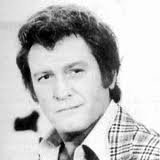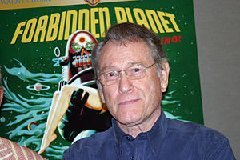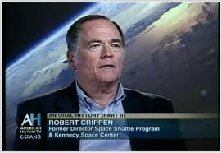
A beach is a landform alongside a body of water which consists of loose particles. The particles composing a beach are typically made from rock, such as sand, gravel, shingle, pebbles, etc., or biological sources, such as mollusc shells or coralline algae. Sediments settle in different densities and structures, depending on the local wave action and weather, creating different textures, colors and gradients or layers of material.
Though some beaches form on inland freshwater locations such as lakes and rivers, most beaches are in coastal areas where wave or current action deposits and reworks sediments. Erosion and changing of beach geologies happens through natural processes, like wave action and extreme weather events. Where wind conditions are correct, beaches can be backed by coastal dunes which offer protection and regeneration for the beach. However, these natural forces have become more extreme due to climate change, permanently altering beaches at very rapid rates. Some estimates describe as much as 50 percent of the earth's sandy beaches disappearing by 2100 due to climate-change driven sea level rise.
Sandy beaches occupy about one third of global coastlines. These beaches are popular for recreation, playing important economic and cultural roles—often driving local tourism industries. To support these uses, some beaches have human-made infrastructure, such as lifeguard posts, changing rooms, showers, shacks and bars. They may also have hospitality venues (such as resorts, camps, hotels, and restaurants) nearby or housing, both for permanent and seasonal residents.
Human forces have significantly changed beaches globally: direct impacts include bad construction practices on dunes and coastlines, while indirect human impacts include water pollution, plastic pollution and coastal erosion from sea level rise and climate change. Some coastal management practices are designed to preserve or restore natural beach processes, while some beaches are actively restored through practices like beach nourishment.
Wild beaches, also known as undeveloped or undiscovered beaches, are not developed for tourism or recreation. Preserved beaches are important biomes with important roles in aquatic or marine biodiversity, such as for breeding grounds for sea turtles or nesting areas for seabirds or penguins. Preserved beaches and their associated dune are important for protection from extreme weather for inland ecosystems and human infrastructure.
Formation
Beaches are the result of wave action by which waves or currents move sand or other loose sediments of which the beach is made as these particles are held in suspension. Alternatively, sand may be moved by saltation (a bouncing movement of large particles). Beach materials come from erosion of rocks offshore, as well as from headland erosion and slumping producing deposits of scree. A coral reef offshore is a significant source of sand particles. Some species of fish that feed on algae attached to coral outcrops and rocks can create substantial quantities of sand particles over their lifetime as they nibble during feeding, digesting the organic matter, and discarding the rock and coral particles which pass through their digestive tracts.
The composition of the beach depends upon the nature and quantity of sediments upstream of the beach, and the speed of flow and turbidity of water and wind. Sediments are moved by moving water and wind according to their particle size and state of compaction. Particles tend to settle and compact in still water. Once compacted, they are more resistant to erosion. Established vegetation (especially species with complex network root systems) will resist erosion by slowing the fluid flow at the surface layer. When affected by moving water or wind, particles that are eroded and held in suspension will increase the erosive power of the fluid that holds them by increasing the average density, viscosity, and volume of the moving fluid.
Even in Roman times, wealthy people spent their free time on the coast. They also built large villa complexes with bathing facilities (so-called maritime villas) in particularly beautiful locations. Excavations of Roman architecture can still be found today, for example on the Amalfi Coast near Naples and in Barcola in Trieste.
The development of the beach as a popular leisure resort from the mid-19th century was the first manifestation of what is now the global tourist industry. The first seaside resorts were opened in the 18th century for the aristocracy, who began to frequent the seaside as well as the then fashionable spa towns, for recreation and health. One of the earliest such seaside resorts, was Scarborough in Yorkshire during the 1720s; it had been a fashionable spa town since a stream of acidic water was discovered running from one of the cliffs to the south of the town in the 17th century. The first rolling bathing machines were introduced by 1735.
To read a lot more, go here: https://en.wikipedia.org/wiki/Beach
Pretzel and Beer Dogs
Pretzel and Beer Dogs is a two-baseball-park-favorites-in-one meal! It's a home run!
- Canola oil for frying
- 1 cup all-purpose flour
- 1/3 cup crushed pretzels
- 1/3 cup cornmeal
- 1 1/2 teaspoons baking powder
- 1 teaspoon onion powder
- 1 teaspoon dry mustard
- 1 teaspoon black pepper
- 1 cup beer
- 1 egg
- 1 pound hot dogs, cut into 1-inch chunks
- Heat approximately 1 inch of canola oil in a large, deep frying pan over high heat.
- In a bowl, combine the flour, crushed pretzels, cornmeal, baking powder, onion powder, dry mustard, and pepper; mix well.
- In a small bowl, combine the beer and the egg. Slowly add to the flour mixture, blending well.
- Dip each hot dog chunk in the batter, coating well. Carefully place in the oil and fry until golden, turning if necessary. Remove the dogs from the oil and drain on paper towels. Serve immediately.
Patriot Day on September 11th honors the memory of the nearly 3,000 innocent victims who died in the September 11, 2001, terrorist attacks. Each year Americans dedicate this day to remembering those who died and the first responders who risked their own lives to save others.
We Remember
For many, September 11, 2001, began like any other weekday. We made our way to work. Children attended school. We shopped, had coffee, waited in line at a drive-thru. Those of us who weren’t in New York City heard the first reports on the radio or television. A friend or neighbor alerted us to a plane flying into one of the Twin Towers. We felt disbelief. An accident, perhaps, a miscalculation. Then, a second plane flew into the second tower. Our disbelief turned into uncertainty and concern.
Those on the ground faced terror and obstacles they had never known. But, then, as a set of coordinated suicide attacks organized by the militant group Al Qaeda targeted the World Trade Center, the rest of the nation witnessed the unbelievable. And then a third plane crashed into The Pentagon. And yet another crashed into a field in Shanksville, PA.
Memorial
Every year since that fateful day, the United States comes together to remember the fallen. We remember the first responders and those who made difficult decisions. Since that day, memorials have risen from the ashes.
HOW TO OBSERVE
- Attend Patriot Day ceremonies.
- Observe moments of silence:
- 8:46 AM EDT – American Airlines Flight #11 collides into the World Trade Center
- 9:03 AM EDT – United Airlines Flight #175 collides into the World Trade Center South Tower
- 9:37 AM EDT – American Airlines Flight #77 crashes into the Pentagon
- 9:59 AM EDT – World Trade Center South Tower Collapses
- 10:03 AM EDT – United Airlines Flight #93 crashes in Shanksville, PA
- 10:28 AM EDT – World Trade Center North Tower Collapses
- Volunteer – While remembering the day, help an organization with meaning to you. Improve the lives of others and the world around you. Spread kindness. Offer them hope. Share your skills with those who need them most.
- Remember – Remember those killed in the attacks. Remember to stand united as a Nation. Join others in prayer vigils or memorial events.
PATRIOT DAY HISTORY
- September 13, 2001 – In the immediate aftermath of the terrorist attacks, President George W. Bush proclaimed Friday, September 14, 2001, as a National Day of Prayer and Remembrance for the Victims of the Terrorist Attacks on September 11, 2001.
- August 31, 2002 – President George W. Bush proclaimed Friday, September 6, through Sunday, September 8, 2002, as National Days of Prayer and Remembrance.
- September 4, 2002 – President Bush proclaimed September 11, 2002, as the first Patriot Day.
- September 9, 2016 – President Barack Obama proclaimed September 11th as Patriot Day and National Day of Service and Remembrance,
In 2017 and 2018, President Donald Trump declared September 8–10 as National Days of Prayer and Remembrance and proclaimed September 11 as Patriot Day. “During the National Days of Prayer and Remembrance, we pause to honor the memory of the nearly 3,000 innocent people who were murdered by radical Islamist terrorists in the brutal attacks of September 11, 2001. We come together to pray for those whose lives were forever changed by the loss of a loved one. We strengthen our resolve to stand together as one Nation.”
9/11 FAQ
Q. Where can I learn more about the 9/11 Memorial.
A. The website 911memorial.org provides substantial information for those wanting to learn more or visit the memorial.
Q. Are there memorials at the Pentagon and Shanksville, PA?
A. Yes, both locations include memorials to the victims of the September 11, 2001, attacks. You can learn more about the memorials by visiting PentagonMemorial.org and the National Park Service websites.















